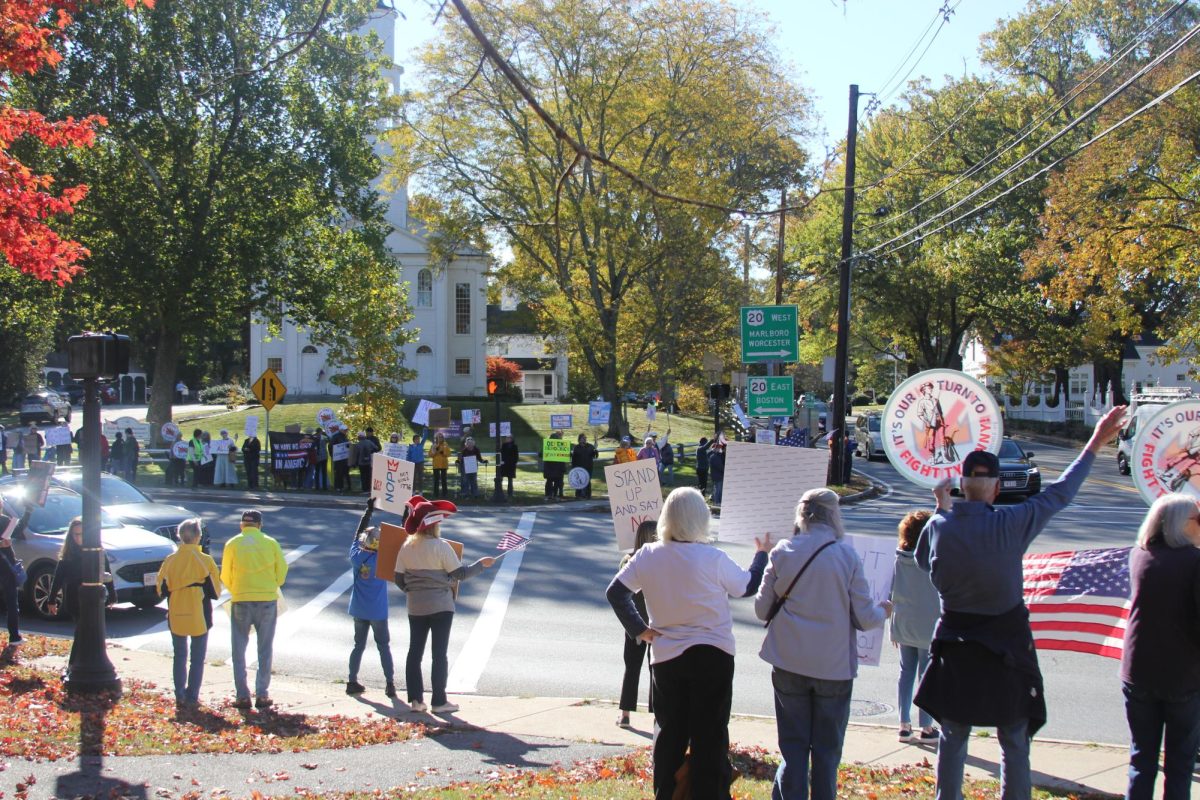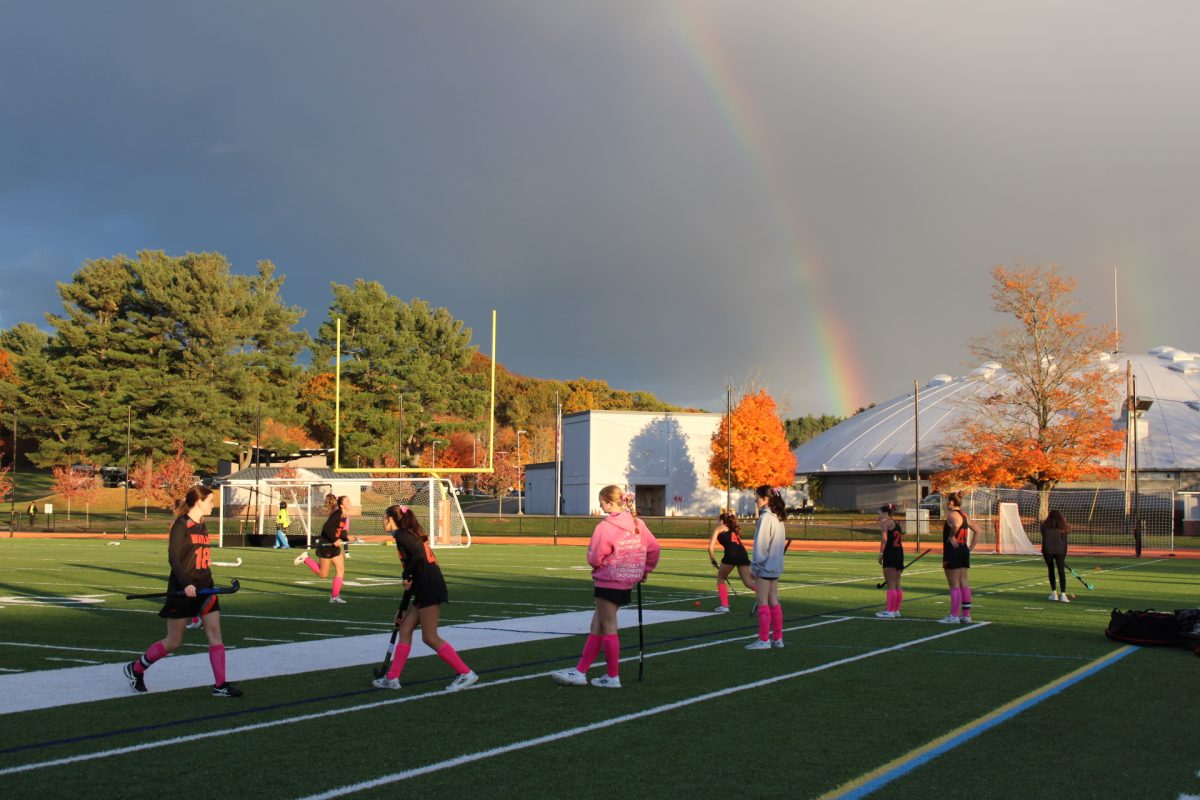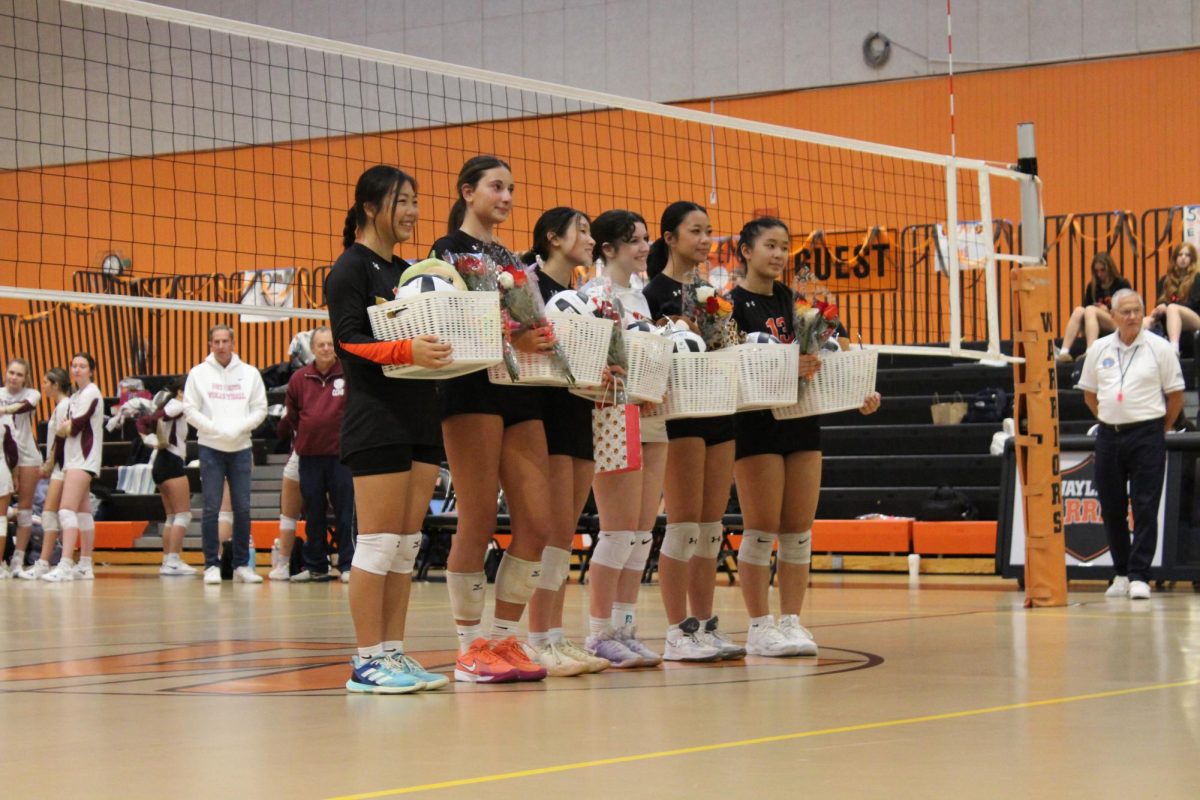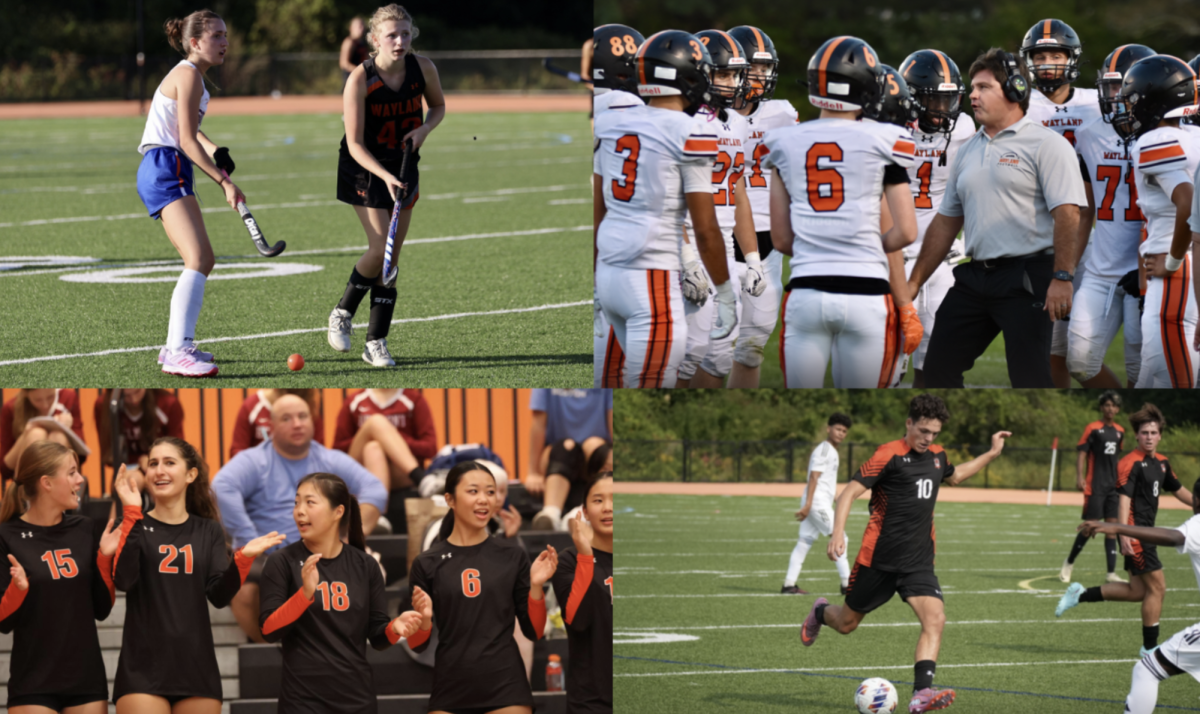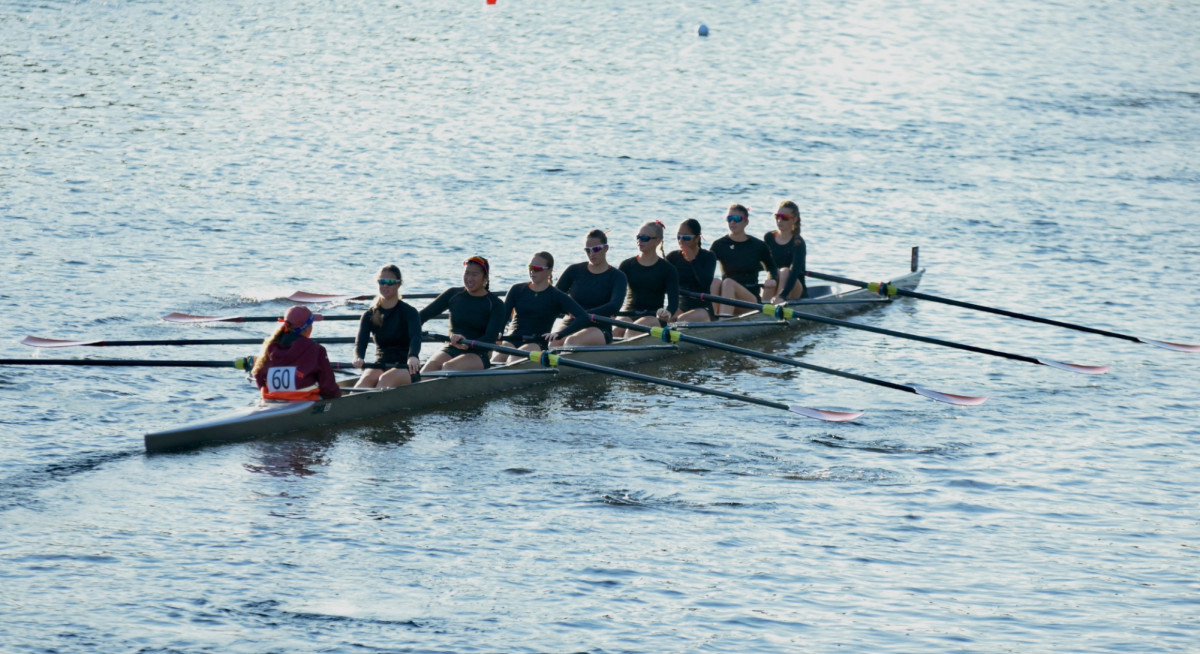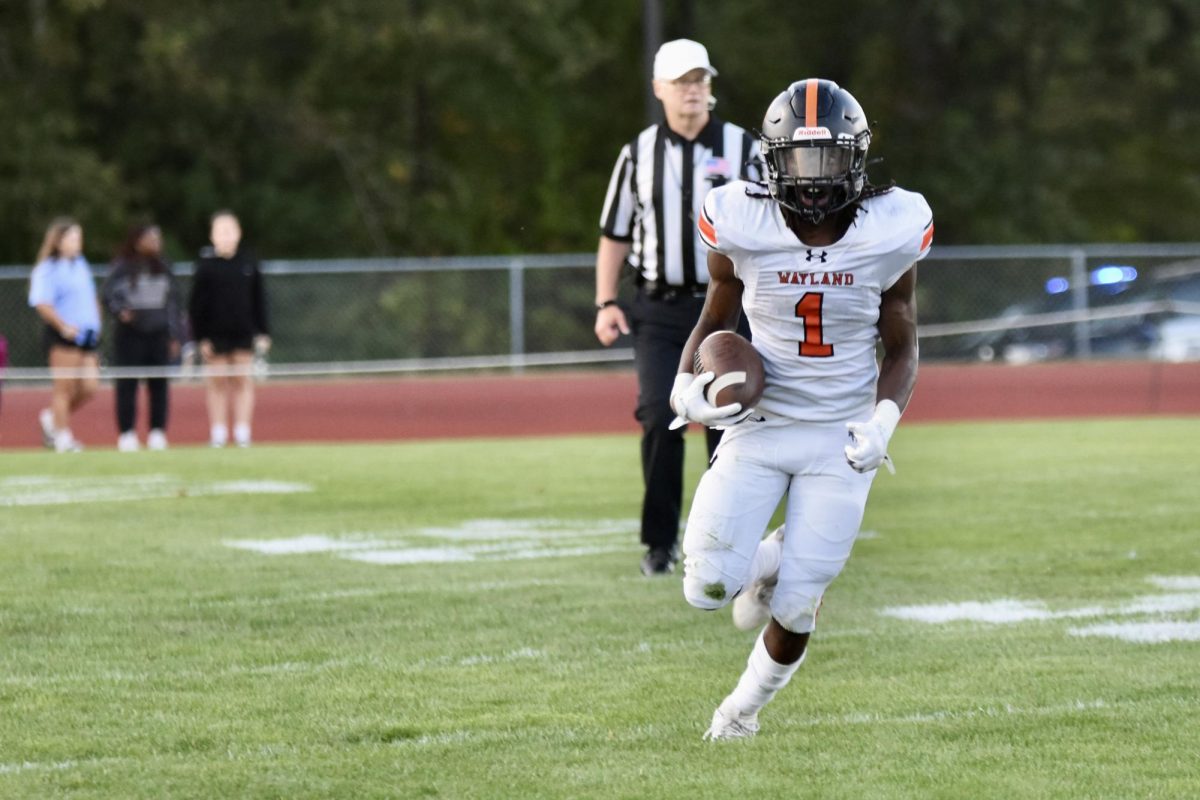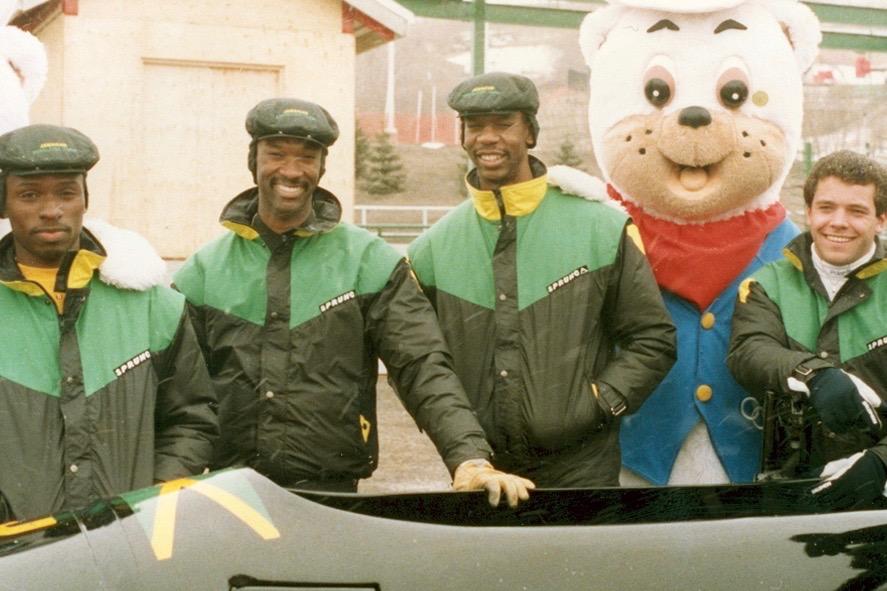“Cool Runnings,” a cool break from reality
Credit: Patrick Brown
Pictured above is the 1988 Jamaican Bobsleigh team with coach American Patrick Brown at the Calgary Olympics. Brown and Jamaican athlete Devon Harris spoke with WSPN about their Olympic journey and commented on the alleged racial insensitivity in the film “Cool Runnings” that was based on their story.
The most famous story in the sport of bobsledding is not about a team achieving an amazing time or winning a medal. It is an unexpected story about a group of athletes from a tropical country who make history by becoming not only the first Winter Olympic team from Jamaica, but also the first all-black team to compete in the Winter Olympics. This story was so sensational that Disney turned it into Cool Runnings in 1993, a movie that was not shown at Wayland High School after Principal Allyson Mizoguchi announced the film’s cancellation because of claims from some in the WHS community that it was racially insensitive. The cancellation gained attention from news outlets internationally and prompted a response from the movie’s star, Leon, and from 1988 Jamaican bobsleigh Olympian Devon Harris and his coach, American Patrick Brown.
In five parts, WSPN examines the true story of the 1988 Olympic bobsleigh team and the movie that was inspired by their story.
Part I: The beginning
Cool Runnings states that the film is loosely based on the true story of the team, and Harris and Brown admit that the film did not capture their real experiences.
“The movie is not a documentary,” Harris said. “If you read the credits it says ‘based on a true story,’ but it is very loosely based on the story of the Jamaican bobsleigh team. I think they did a really good job depicting the spirit of the team despite the things we had to overcome, but they took many of the facts and stretched them to make them funny.”
The real story that Harris and Brown lived was full of hard work, determination and not quite as much comedy.
“The whole team with the original guys was in it 100%,” Brown said. “They wanted to represent their country and do well. There was a lot of pride there. That is the big thing I hope people take away from [the story]. They were not just clowning around. They were very serious about it.”
The serious nature and pride for their country the four athletes brought to the sport were largely because of their background.
The team’s brakeman, Devon Harris’ story begins in the ghetto of Kingston, Jamaica. Following high school, Harris went to the Royal Military Academy Sandhurst in England and graduated after going through intense and disciplined training. Then, Harris became a Lieutenant of the Second Battalion in the Jamaica Defense Force. Harris always had a dream of going to the Olympics as a sprinter and in the summer of 1987, he began training for the 1988 summer Olympics in Seoul, South Korea.

The 1988 Jamaican Bobsleigh Team with coach Howard Siler.
Meanwhile, two Americans, George Fitch and William Maloney, had the idea to create an Olympic bobsleigh team in Jamaica. The pair believed that a country with great sprinters could produce a great bobsleigh team.
“[Fitch and Maloney] always felt that Jamaica has the fastest sprint athletes in the world, and a big part of bobsledding is your running start,” Brown said. “In theory, if you put fast guys in [the bobsleigh race] you get results. That’s why they even started it. Then it just grew some legs.”
After no Jamaican summer Olympic athletes were interested in the sport, the men turned to the Jamaica Defense Force to look for talent. That’s where they found Harris and invited him to the bobsleigh tryouts in August.
“I don’t believe they expected me to make the team,” Harris said.
Unlike what’s depicted in Cool Runnings, the athletes went through an intense tryout process that consisted of sprinting different lengths, jumping, shot put and lifting weights. The final part of the tryout was a push test with a push sled. The entire tryout took place over three days and the athletes had three attempts at each event.
“For me personally, [the tryout] was incredibly tough because I was a middle-distance runner, not a sprinter, and we did sprint based testing for speed,” Harris said. “The only test I was comfortable with was the 300-meter run.”
Part II: The team
After the team was selected, the athletes had only six months to prepare for the 1988 Olympic games in Calgary, Canada. The original team was made up of athletes Harris, Dudley Stokes, Michael White and Freddy Powell and was coached by American Howard Siler. However, Powell was replaced by Stokes’ brother, Chris, and Siler turned the coaching responsibilities over to Patrick Brown after he had to return to work three months before the Olympics. Brown, an American bobsledder, was only 20 years old when he took over coaching.
Starting a team with athletes unfamiliar with the sport was not uncommon at the time. Only 16 nations had bobsleigh teams in the 1984 Olympics. Out of these countries, very few of them had bobsleigh tracks that they could practice on. Many teams, like Jamaica, found ways to practice without sliding down a bobsleigh track.
“Other than the fact that they were not used to snow or the cold, coaching [the Jamaicans] was pretty much as if they were anyone else coming in for the first time giving it a try,” Brown said.
The team trained heavily during the months leading up to the Olympics. They practiced in Jamaica, Lake Placid, New York and in Innsbruck, Austria. The Jamaicans first saw a bobsleigh in 1987 and went on their first bobsleigh track in Calgary a few months later. The team originally planned to only race two two-man bobsleighs in the Olympics and practiced sliding with two-person sleds.

The 1988 Jamaican Bobsleigh Team with coach Siler.
In December of 1987, the team qualified for the Olympics at their first World Cup in Innsbruck, Austria.
“Back in ‘87, it was pretty easy [to qualify],” Brown said. “Our only qualifier to get into the Olympic games was to compete in one World Cup event. It didn’t matter where we finished, we just had to finish and compete in one World Cup event.”
It wasn’t until about a month before the Olympic games that Brown suggested the team try entering a four-man bobsleigh too.
“After Christmas break, we went to Lake Placid to train for a month and I a floated it past the team manager and said since we are going to the games anyway, why not try to enter in the four-man event,” Brown said. “So we bought a used four-man sled in Lake Placid and the team started driving a four-man sled just about three weeks before the games started.”
Part III: The race
By the time the team arrived in Calgary for the Olympic games, the underdogs had become a sensation. The world was fascinated with the winter athletes from the warm country. The team had no idea how famous they had become until they stepped out of the airport before they were scheduled to go do a fundraiser.
“The doors opened up and there were like 200 people standing there cheering for us and we had limos taking us to the events,” Brown said. “It was a pretty cool experience.”

At the Olympic games in Calgary, the team raced one two-man sled and one four-man sled. White and Dudley Stokes raced in the two-man sled, placing 30th out of 41 teams overall.
“Their results were very good for a first time team in the two-man,” Brown said. “But the four-man was a whole different story. They just hadn’t had enough practice in it.”
The four-man sled suffered a crash in the race and the Jamaicans could not finish their run.
There is no mention of the two-man sled in Cool Runnings. Instead, the film focuses only on the four-man event, highlighting the notorious crash at the end of their race, which is the only part of Cool Runnings that is true to the Jamaicans’ actual experience. The footage from the crash that is shown on T.V. in the film is from the actual 1988 race. The actual crash was due to a loss of control during a turn, not a mechanical error as shown in the movie.
Harris and Brown both note that the tension between the Jamaicans and other teams at the Olympics was completely fictional as well. In Cool Runnings, the East German bobsleigh team tormented the Jamaicans, but Harris recalls specific moments when the East Germans were nice to them.
“I think athletes generally treat each other well,” Harris said. “Bobsleigh is a close-knit fraternity.”
Harris does not believe that the hostility between the Jamaicans and other teams shown in the movie had anything to do with their race.

The Jamaican Bobsleigh Team after their crash in the Calgary Olympic Games.
“You could easily make the argument that we did not belong because we did not know enough,” Harris said. “We were just in the sport for a few months and here we were trying to run with the big teams. We have not paid our dues as athletes and spent enough time learning the sport, and that is true. We were competing at the Olympic games with only a few months in the sport and we had never seen a bobsleigh before.”
One of the biggest challenges the Jamaican team faced off the track was funding.
“We had no money,” Brown said. “There were times when we were in Austria selling t-shirts in the parking lot in the bobsleigh track in order to eat that evening. George Fitch basically funded this whole thing out of his pocket.”
Part IV: The movie
1988 marked the end of the four athletes’ Olympic journey, but it did not mark the end of their story. About five years after the Jamaican team raced down the Olympic track, Disney released Cool Runnings. Brown says he had nothing to do with the creation of the film, but Harris, along with the Stokes brothers and George Fitch, talked with Disney’s scriptwriters and told them their story.
“I personally imagined that after we walked away, [the script writers] just threw all [their notes] out saying that was a load of crap,” Harris said. “That is why you got what you got. The movie took about five years to film and went through quite a few rewrites. The interviews provided the basis for the storyline they used for the film.”
Nevertheless, Harris believes Cool Runnings is a good film and does not believe it is racially offensive.
“In the 25 years since this movie’s [release], this is the first time I have heard someone call it racially insensitive,” Harris said.
Harris does not agree Mizoguchi’s comment that race was the reason why the characters were portrayed as if they were “fish out of water.”
“You don’t see someone as being a ‘fish out of water’ because of their skin color. You are not a ‘fish out of water’ simply because of your ethnicity,” Harris said. “Were we ‘fish out of water’ in Calgary? Yes. In some respects, we were simply because we were at the Olympic games only three months after we started the sport. We are proud of the fact that we are from Jamaica and at the Winter Olympics. That is definitely something to be proud of. We were ‘fish out of water’ because we lacked experience and knowledge.”
Mizoguchi also pointed out articles which criticized how the Jamaican characters acted when they first experienced cold. Harris views this portrayal as partially accurate.
“We just think [the portrayal] is funny, we don’t find it offensive. I don’t know what’s offensive about it,” Harris said. “It is half accurate. The first time I experienced cold it was spring and I thought I was going to die.”
Harris first experienced cold when he went to the Royal Military Academy Sandhurst in England. He recalls stepping of the tube and experiencing a cold wind.
“The door closed and the air punched me in the face and my heart almost stopped,” Harris said. “I absolutely love the cold today and I thank bobsledding for that.”
Overall, Harris appreciates the comedy in the movie and is not offended by it.
“It’s a comedy. People need to lighten up, to be honest,” Harris said. “There are far more important lessons in Cool Runnings that we should be focusing on. I think you can look at any work of art, whether it is a painting, a song or music and find reasons to be critical of it and find unflattering things to say about it. Regardless of the subject, there are always going to be some people, even it’s a really small minority, who will not agree. They will see something different. This doesn’t mean that it is not good.”
Brown also enjoys the movie and likes the comedy format.
“It was a feel-good movie. I think people are getting a little bit too hypersensitive with a lot of things,” Brown said. “I think with my personal experience with the team, they were there to represent their country. As far as the movie goes with the actors, I don’t think anyone was laughing at them per say. It’s a comedy, and with any comedy, there is going to be certain things that not everybody is going to agree with. The portrayal was good.”
Brown does point out that Cool Runnings leaves out important parts in the athletes’ journey.
“[The team] didn’t just go from the tryouts in the summer to sliding at the Olympic games,” Brown said. “For the five months that I was with the team, they were pretty intense with training, sliding and working really hard to get to that point. I think that was one of the bigger things they missed in the movie.”
Brown also mentioned that it would have been helpful for the Jamaican Bobsleigh team to receive money from the film. Although some of the athletes got paid by Disney, no money was given to the Jamaican Bobsleigh team and the team still struggles to get funds. Brown believes this is why the team has not grown and seen more success in the years following the movie’s release.
“If Disney had put some money away into a trust that they could have grown off the interest every year, I think we would have seen Jamaica on the podium by now,” Brown said. “Over the past 30 years, I occasionally get a phone call from one of the Jamaican kids who doesn’t have bobsleigh shoes. I am always running around trying to get them equipment and shoes and it’s tough to see.”
Although all the characters in Cool Runnings are fictional, Harris sees himself most in Yul Brynner played by Mikil Yoba.
“[Yul Brynner] was a dreamer,” Harris said. “He was the guy who wanted to go to Buckingham Palace. That’s how I am as well, I am a dreamer.”
Part V: The future
Since competing in the 1988 Olympic games, Harris has stayed involved in Jamaican bobsledding. Harris founded the Jamaica Bobsleigh Foundation (JBF) in 2014 and serves as the Chairman. His teammate Dudley Stokes is the president of the JBF. Today, Harris also travels as an international motivational keynote speaker. He speaks about having a vision, achieving goals and why it is important to “keep on pushing” despite obstacles one may face in life. He founded the Keep On Pushing Foundation in 2006 that supports education for kids in disadvantaged communities. Harris also became involved in the 2018 Jamaican Bobsleigh teams helping to recruit athletes. The men’s team missed qualification for the Pyeongchang games by one spot, but the women’s two-person Jamaican bobsleigh team will be competing Tuesday, February 20th.

Devon Harris, three-time bobsled Olympian, greets troops at the Transit Center at Manas, Kyrgyzstan, Feb. 13, 2013. Harris, who now travels the world as a motivational speaker, shared his Olympic experience with troops during a brief visit to the Transit Center.
Harris has found important takeaways from the controversy surrounding Cool Runnings at WHS. He says that this story has broadened his perspective and helped him reflect on both the film and his life.
“You have to put yourself in a position where people will perceive you as a ‘fish out of water,’” Harris said. “If you don’t, then you are not trying hard enough. Being a ‘fish out of water’ means being confident with discomfort. You need push out of your surroundings to achieve new goals, and for me, that means yes, you are going to feel and look like a ‘fish out of water.’”
Brown is now a bobsleigh development coach. After the 1988 Olympics, Brown went back racing for the US Bobsleigh team until 1992. He never made the Olympics as an athlete, but he did go on to coach two other Olympic teams. In 2002 he coached Greece and 2010 he coached Korea. During the 2014 Olympics, Brown was the President of the Jury for the Women’s Bobsleigh Races.
30 years after the first Jamaican bobsleigh team’s first run in 1988 Olympics and 25 years after Cool Runnings was released, people are still talking about the story.“Quite honestly Cool Runnings did more for the sport than really anything has,” Brown said. “Prior to that, nobody knew what bobsledding was. Now if you mention bobsledding the first thing someone says to you is ‘Oh Jamaican bobsledding.’ It was a big support for the entire sport to have that movie made.”
Your donation will support the student journalists of Wayland High School. Your contribution will allow us to purchase equipment, cover our annual website hosting costs and sponsor admission and traveling costs for the annual JEA journalism convention.
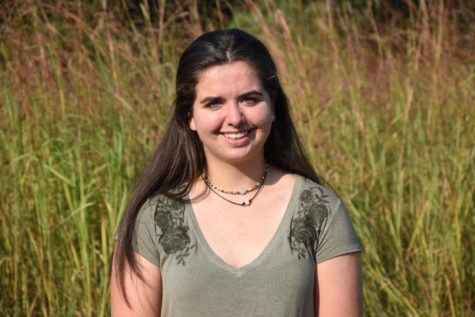
Isabel Gitten is co-editor-in-chief of WSPN. She is a senior and this is her third year on WSPN. Isabel was Multimedia editor last year. She rows on the...

